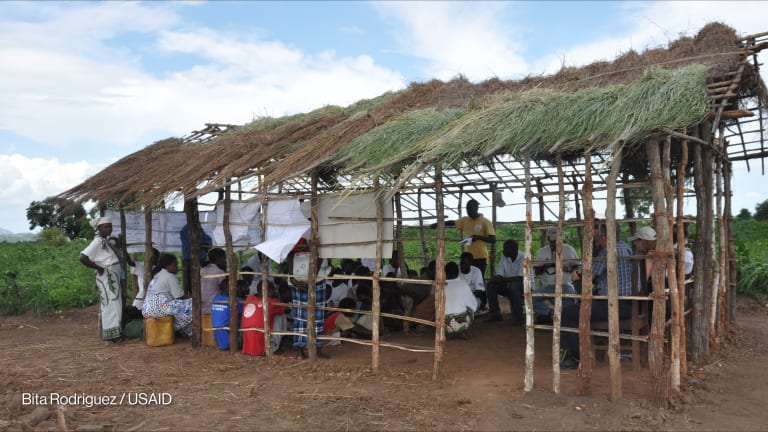
South Sudan currently faces the “worst food security situation in the world,” and since airdropping food aid in the conflict-battered country is too expensive on for cash-strapped donors, the U.S. government has decided to tap into an emergency trust fund for the first time since the global food crisis six years ago.
“The scale of the suffering and humanitarian need there is shocking, and the threat of famine is real—so much so that we are using this emergency funding authority for the first time since 2008,” U.S. National Security Advisor Susan Rice said in a statement.
The U.S. Agency for International Development will draw on $180 million from the Department of Agriculture’s cash and commodities reserve for Food for Peace programs to meet unanticipated food aid needs, originally authorized by the Agricultural Act of 1980 and reauthorized through 2018 in the most recent Farm Bill. The trust “is designed to hold up to 4 million metric tons of wheat, corn, sorghum and rice administered under the authority of the Secretary of Agriculture,” which is also allowed “to invest the funds … in low-risk, short-term securities or instruments so as to maximize its value. It currently holds only cash — about $311 million in fiscal 2013, according to the a Congressional Research Service report.
“The trust is used so that we do not exhaust other funds,” Matt Herrick, a USAID spokesman, told Devex in a written statement. “In this case, delivery of food assistance in South Sudan requires our partners to rely on emergency air operations to provide aid to people in hard-to-reach areas, drastically increasing the cost of delivering humanitarian aid,” Herrick added.
In its fiscal year 2015 budget request, the Obama administration has asked for additional flexibility in the way that U.S. government food aid can be delivered, seeking to end a practice known as “monetization,” by which U.S.-produced food commodities are shipped and sold overseas and the proceeds from their sale are used to fund development programs.
Herrick noted that funds from the trust will allow USAID and its partners to “preposition” emergency food stocks in strategic locations in anticipation of South Sudan’s upcoming dry season. He added that the U.S. government has committed more than $636 million in humanitarian assistance to South Sudan in fiscal year 2014.
“We are striving to do all we can to prevent famine, and we urge other donors to similarly seize this moment to respond robustly while there still may be a chance to prevent the worst consequences of this conflict,” the agency spokesman said.
Read more on U.S. aid reform online, and subscribe to The Development Newswire to receive top international development headlines from the world’s leading donors, news sources and opinion leaders — emailed to you FREE every business day.








